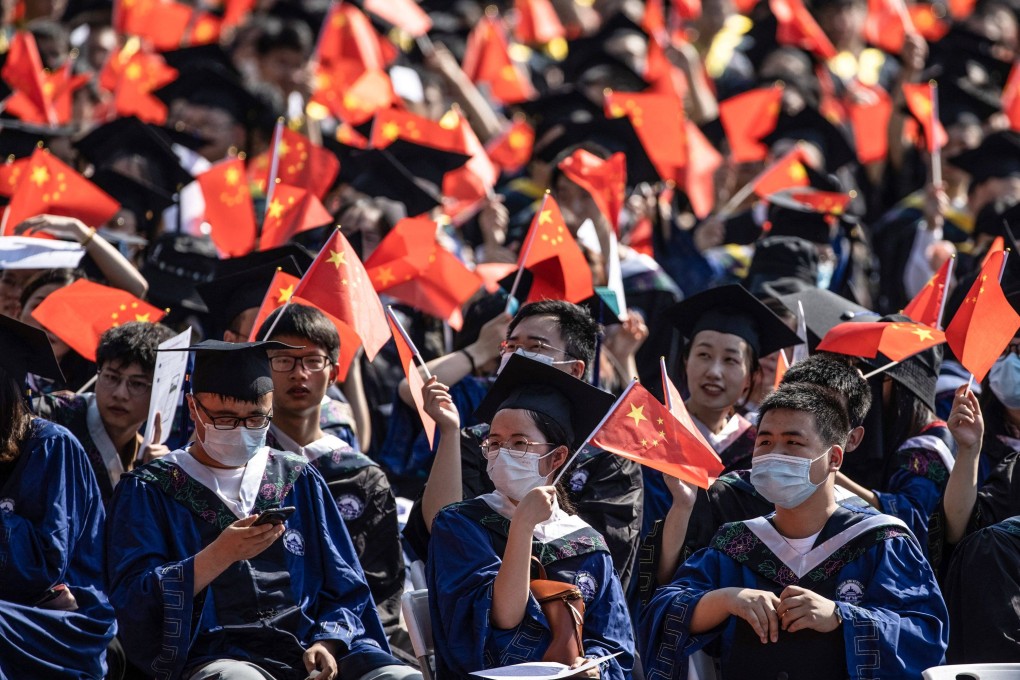China asks upcoming university graduates what they want in a job, as employment struggles weigh on economy
- New Ministry of Education survey is Beijing’s latest attempt to assess and strengthen its job market where nearly 1 in 5 college graduates are out of work
- Employers are also being asked about their hiring plans for the coming years

In a bid to learn more about what can be done to improve the dismal employment rate among its fresh college graduates, China is going directly to the source.
A new survey by the Ministry of Education is asking members of the next year’s graduating class – comprising nearly 11 million students – about their job preferences, entrepreneurial ideas and “prospects for further education or employment”, according to the questionnaire reviewed by the Post.
Meanwhile, employers are similarly being asked about the state of their operations, hiring intentions and demands of graduates for the coming two to three years.
After the ministry held a video conference with six university leaders last week in a bid to address employment issues, more universities invited students to partake in the 15-question Employment Survey for 2023 College Graduates.
The survey is among the tools that Beijing is utilising to shore up an increasingly fierce job market amid an economic downswing resulting from a confluence of headwinds, including from its restrictive coronavirus controls and geopolitical tensions.